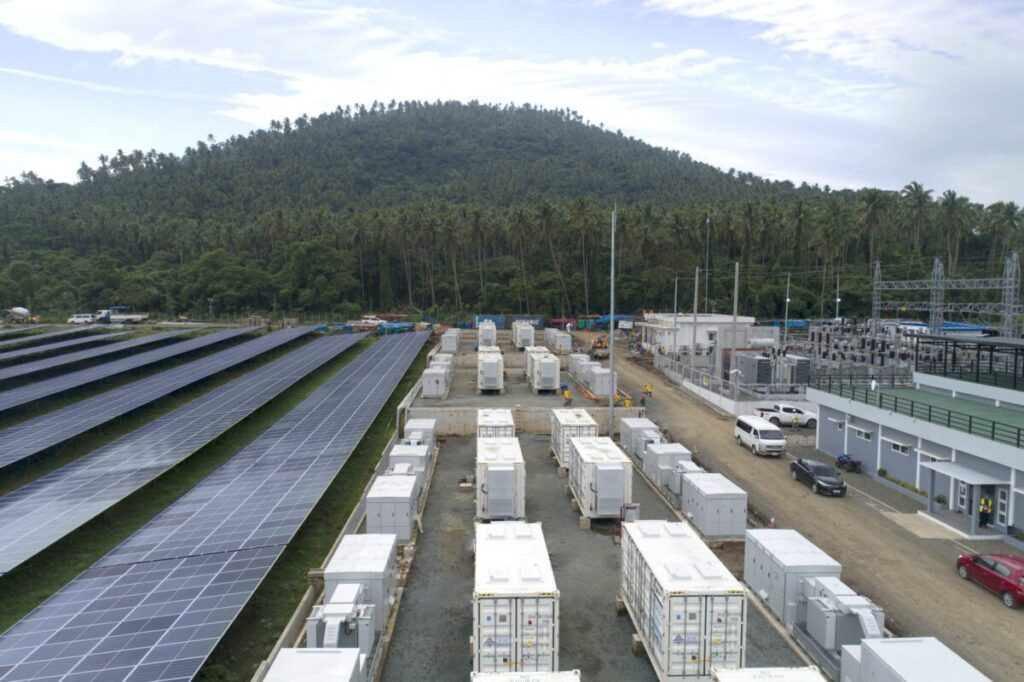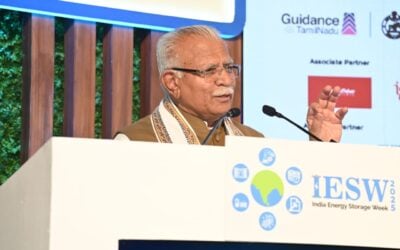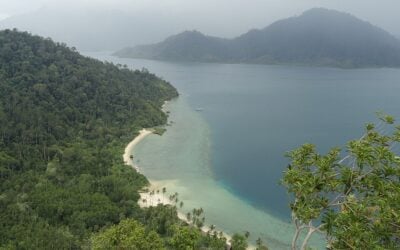
The government Department of Energy (DOE) of the Philippines has opened the initial steps of an auction scheme for renewables paired with energy storage.
The DOE officially released the Terms of Reference (TOR) yesterday (13 March) for the competitive solicitation, which will be held as part of the fourth round of the national Green Energy Auction (GEA-4).
Enjoy 12 months of exclusive analysis
- Regular insight and analysis of the industry’s biggest developments
- In-depth interviews with the industry’s leading figures
- Annual digital subscription to the PV Tech Power journal
- Discounts on Solar Media’s portfolio of events, in-person and virtual
The Southeast Asian country’s government will tender for 9,378MW of renewables, comprising distributed and large-scale solar PV, including ground-mount, rooftop and floating PV, alongside onshore wind capacity.
Alongside this, bids will be invited for 1,100MW of solar projects that feature an energy storage component, which the DOE has dubbed Renewable Energy and Energy Storage Systems (IRESS).
Successful developers will get 20-year supply contracts with the government for projects in Luzon, Visayas and Mindanao, with commercial operation dates in 2026, 2027, 2028 and 2029.
The launch of the inaugural IRESS auction has been a little delayed. It was announced by DOE assistant secretary Mario C. Marasigan that it would be opened in Q4 2024 in a keynote speech at the Energy Storage Summit Asia 2024 in Singapore, hosted in July last year by our publisher Solar Media.
At the time, the assistant secretary said the DOE was studying the design and economic viability of IRESS. Marasigan highlighted the vital role of energy storage in the Philippines’ pursuit of “a sustainable and resilient energy future.”
The DOE said yesterday that it will issue a Department Circular setting out guidelines for the auction in the coming days. It also noted that the Green Energy Tariff (GET) awarded to GEA projects will be subject to indexation in forthcoming tenders, which will be determined by the Energy Regulatory Commission (ERC) in accordance with feed-in tariff (FiT) rules.
‘This adjustment ensures that tariff rates remain fair, transparent, and responsive to market fluctuations, reinforcing investor confidence in the renewable energy sector,’ the DOE wrote in its announcement.
Previous round selected 7GW of pumped hydro projects
Along with the previous Green Energy Auction round, GEA-3, the date was pushed back. GEA-3 was subsequently held earlier this year, and the results, published in mid-February, also had a major energy storage component.
The DOE had sought a total installation target of 4,650MW for projects not eligible for feed-in tariff (FiT) subsidies. Hydroelectric generation, pumped hydro energy storage (PHES) and geothermal technologies were the main eligible technologies.
In the end, GEA-3 concluded with 7,500MW of offered capacity being awarded, including three PHES projects totalling 6,950MW, a 30.9MW geothermal plant, and a 550MW hydroelectric project.
Rounds 1 and 2 of the GEA selected just over 5GW of renewable energy capacity bids, to go into operation in 2024 and 2026 respectively.
The Philippines saw something of a boom in standalone battery energy storage system (BESS) installations a couple of years ago as large power producers, mandated in the top-down regulated energy market to provide ancillary services, added battery storage to improve the efficiency of delivering these applications from their existing thermal power fleets.
The country is targeting a 35% share of electricity from renewable sources by 2030, and 50% by 2040, with steady increase in share beyond that point, as set out in the Philippines Energy Plan 2023-2050.
President Ferdinand Marcos Jr has made statements supportive of the role of storage alongside renewables at various public appearances over the past couple of years.
The president attended the groundbreaking ceremony of Meralco Terra Solar project in Gapan City in November 2024, currently thought to be the world’s largest solar-plus-storage project in construction.
Meralco Terra Solar will pair 3.5GWp of solar generation with a 4.5GWh BESS. Its development by a subsidiary of developer Solar Philippines was fast-tracked by the government last August as the Board of Investments (BOI) issued a ‘green-lane certificate’ which expedited its licensing and permitting.
Chinese electronics firm Huawei was confirmed in December as the BESS technology provider for Meralco Terra Solar.






